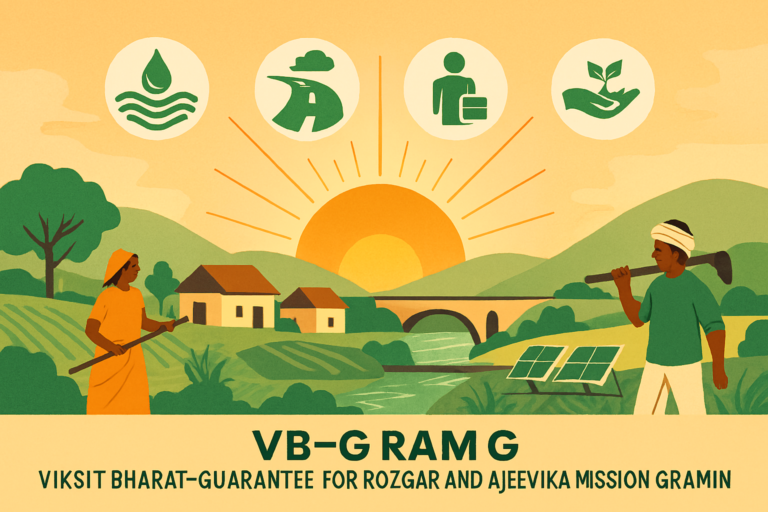Swachh Bharat Mission – Urban 2.0 (SBM-U 2.0)
Quick Facts
- Purpose: To create Garbage Free Cities (GFCs) and sustain cleanliness in all urban areas.
- Type: Centrally Sponsored Scheme (CSS).
- Coverage: All statutory towns.
- Tenure: Till 2026.
Objectives
- Ensure cleanliness and hygiene in public places.
- Reduce air pollution by scientific management of waste.
- Promote holistic sanitation and safe treatment of used water.
- Build capacity and awareness for behavior change.
- Encourage Jan Andolan (people’s movement) for sustainable sanitation.
Background
- Originally launched on 2 October 2014 with the aim of making India Open Defecation Free (ODF) by 2019.
- SBM-U 2.0 is the next phase, focusing on Garbage-Free Cities after achieving ODF targets.
Mission Components (Funding-linked)
Funding to Urban Local Bodies (ULBs) is conditional upon achieving at least 1-star Garbage-Free City certification.
The mission includes five major components:
- Sustainable Solid Waste Management:
- 100% scientific waste processing.
- Source segregation of waste.
- Bio-remediation of legacy dumpsites.
- Sustainable Sanitation:
- Sustain ODF status.
- Achieve ODF+ (toilets with water, maintenance, hygiene).
- Achieve ODF++ (toilets with sludge and septage management).
- Used Water Management:
- Prevent discharge of untreated fecal sludge and wastewater.
- Especially target towns with less than 1 lakh population (Water+ status).
- Awareness & Behavior Change (IEC/BCC):
- Campaigns like Meri Life, Mera Swachh Shahar.
- National BCC Framework for Garbage-Free Cities.
- Capacity Building (CB):
- Strengthen institutions and promote skill development in waste management.
Special Features
- Entrepreneurship: Encourages local, cost-effective sanitation and waste solutions by startups/SMEs.
- Technology & Digital Push: Use of ICT, e-learning, and skill development for modern sanitation practices.
- Urban-Rural Convergence: Shared infrastructure clusters for waste management between towns and nearby rural areas.
- Challenge Fund: ₹13,029 crore over 5 years for 10+ lakh population cities to meet benchmarks.
Key Initiatives
- Swachh Survekshan:
- World’s largest annual cleanliness survey (conducted by QCI).
- Promotes healthy competition among cities.
- Meri Life, Mera Swachh Shahar Campaign:
- Promotes Mission LiFE (Lifestyle for Environment) and citizen participation.
- National BCC Framework for GFC:
- Institutionalizes public participation for garbage-free cities.
Outcomes Envisaged
- Garbage Free Cities (GFC): All statutory towns to achieve at least 3-star rating.
- ODF+: All statutory towns with toilets that ensure water, hygiene, and maintenance.
- ODF++: All towns with population < 1 lakh to ensure sludge and septage management.
- Water+: At least 50% of towns with population < 1 lakh to ensure no untreated wastewater is released into the environment.
✨ Conclusion
The Swachh Bharat Mission – Urban 2.0 builds upon the success of ODF India and moves towards the vision of Garbage-Free, Sustainable Cities.
It is not only about toilets or garbage bins, but about changing citizen behavior, reducing pollution, treating wastewater, and integrating technology with community participation.
📌 For UPSC:
- Launch: 2014 (Phase 1), SBM-U 2.0 till 2026.
- Purpose: Garbage-Free Cities.
- Coverage: All statutory towns.
- Key Outcomes: ODF+, ODF++, Water+, 3-star GFC certification.
- Survey: Swachh Survekshan (largest in the world).

